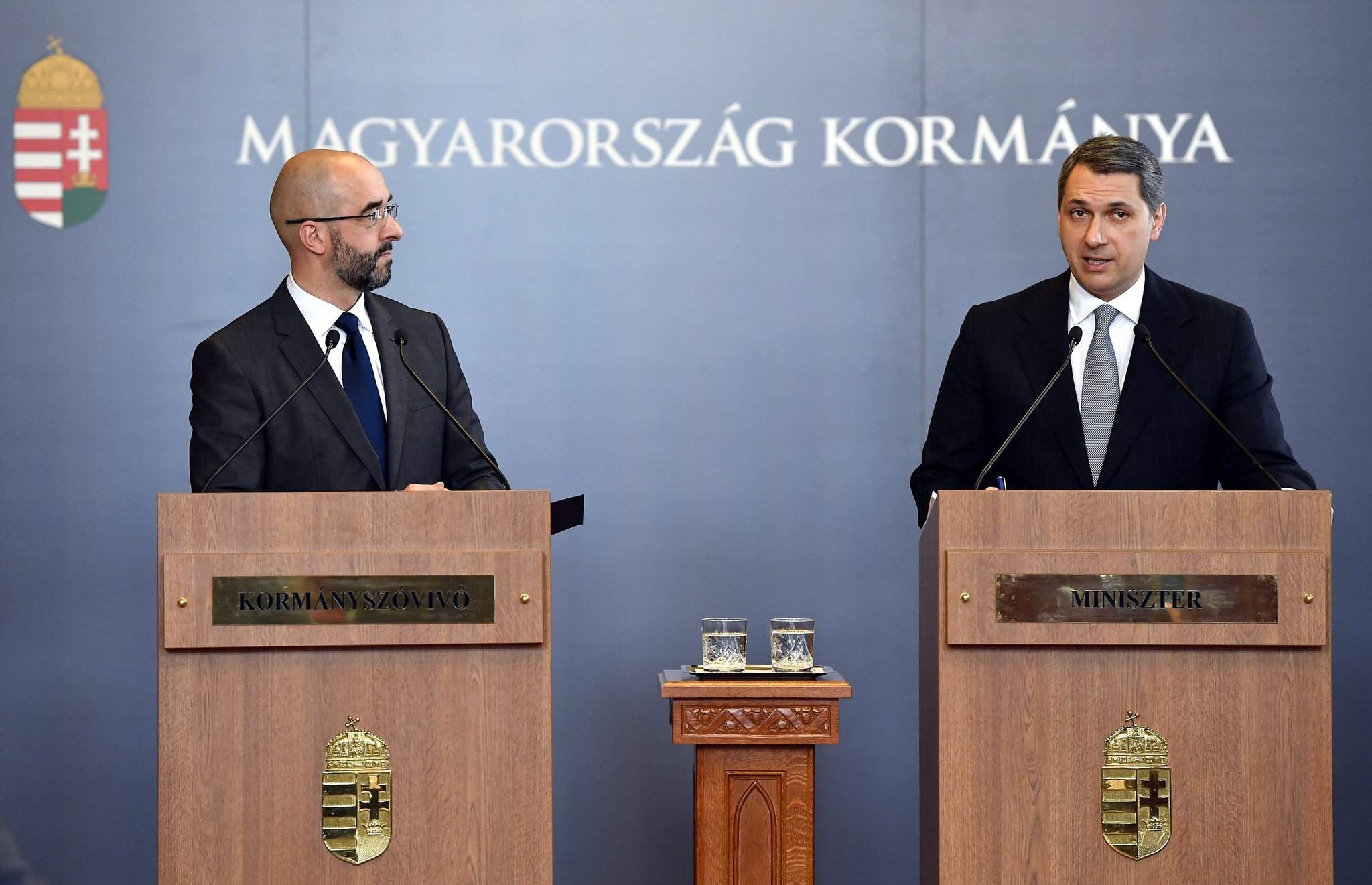Hungarian government: Amended law not aimed at curbing education freedoms
Budapest, April 6 (MTI) – Hungary’s recently amended higher education law does not restrict freedoms in education and research or the autonomy of universities, government office chief János Lázár told a weekly news briefing on Thursday.
The government aims to create equal opportunities in education and clear rules on competition, and to eliminate drawbacks for Hungarian universities, Lazar said.
The government is “ready to respond to Brussels, Washington and Berlin”. Financier “[George] Soros and his network” has put those capitals under “serious pressure”, Lázár insisted, adding that “Hungary is being lobbied against”.
“We will protect the country from those groupings,” he said.
The law is based on an assessment of the activities of foreign universities in Hungary, Lázár said. Other states use their sovereign right to regulate the founding and operation of foreign universities, he said, adding that the issue in Hungary was surrounded by political hysteria.
Laws parliament approves apply to everyone and this fact seems to have got lost on some, he said. The new regulations stipulate that universities should guarantee a level playing field and all foreign universities operating in Hungary should pursue higher education activities recognised in their country of origin, too. Additionally, they should operate based on an international agreement signed between Hungary and the country of origin. The CEU, he insisted, would be able to meet these conditions, adding that the regulations are not discriminatory but are about transparency.
Lázár said he wondered why the CEU would want to question the applicability and legitimacy of the law instead of meeting the conditions set down therein. It is in the interest of “certain groups” to generate tension instead of resolving the situation, he added.
Calmness is needed on the issue but “the Soros network will be probably pushing its own agenda”, Lázár said.
The law now needs to be explained, which is something that Hungary has gained great experience in over the past few years, he said.
In general, preparations are under way to force European Union migrant quotas on Hungary. Once the law on the transparency of NGOs is enacted, more questions will be raised and threats made. “Essentially it’s all about the quotas,” and the issue of CEU is being channelled into this dispute, Lazar insisted.
Some members of the European People’s Party have formed an opinion regarding the CEU issue at variance to the government’s, and so the task is to provide correct information to them, in a calm and relaxed manner, Lázár said.
He said the CEU had achieved a lot in several areas and had developed an intellectual hinterland. Even so, they should not question parliament’s right to regulate the conditions under which a university operates, he added.
Lázár said the Hungarian government opposes Soros’ views on migration, but this should not be conflated with the issue surrounding the higher education amendments. The government’s problem is with Soros, but this “has nothing to do with” the Central European University, its students or professors, Lazar insisted.
What Soros has done over the past years in connection with illegal migration rubs up against Hungary’s national security interests, he said.
“We cannot tolerate having someone bring migrants to our border and forcing our hand,” the government office chief said.
Lázár said the government’s aim is to stop migration, “while Soros’s is to organise it”. He said having “Soros-affiliated organisations” sue Hungary in an effort to force it to open up its borders was “unacceptable”.
Commenting on a recent demonstration held in support of CEU at which plainclothes police had been present, he said this was normal practice at large events to ensure the peace.
In response to a question about whether President János Áder would sign the law, he said it is the president’s right to decide that and “it would be improper for a minister to answer such a question”.
In connection with an article in The Times alleging that Hungary and Poland could be expelled from the EU, he said the report was not based on serious information but it was indicative in terms of the pressure that Hungary can expect in connection with migration.
Commenting a suggestion that Russia could be using Hungary for propaganda purposes, he said: “Russia has its own set of tools for influencing western Europe and it does not need to resort to using Hungary”.
Source: MTI
please make a donation here
Hot news
Hungarian government to prioritise setting up EU cardiovascular strategy during presidency
Hungary among the best holiday destinations with cheap beer in Europe
New European Bauhaus: Hungarian project receives EU prize
What happened today in Hungary? – 15 April, 2024
Foreign Ministers of Denmark and Hungary meet to discuss stopping illegal migration
Chaos on Deák: Hungarian influencers splash HUF 2 millions from rooftop – VIDEO




